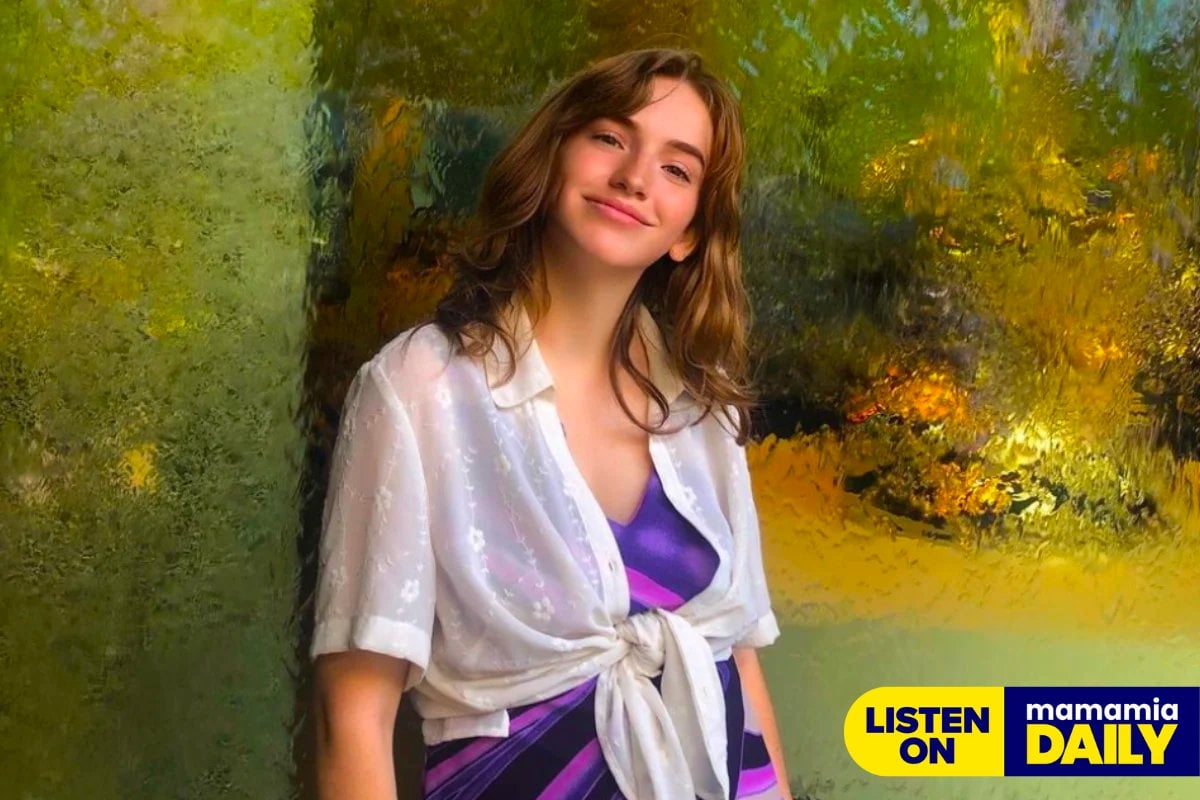
Listen to this story being read by Isabella Ross, here.
When Caroline Elisabeth Cull was 25, a realisation hit her. It was something she had long wondered about but didn't have the terminology or understanding to fully grasp.
After a late-night Google search, she realised that she was asexual.
"I think the first time I saw the word asexual was after a really bad date I had just experienced, which lead me to Google at three in the morning 'Why is sex so bad?' and 'What's wrong with me?'" Caroline said to Mamamia.
"For the first 25 years of my life I wondered if my vagina was broken. I initially dismissed it, but after watching the UK TV show Sex Education on Netflix it started to dawn on me. One of the characters in the second season is asexual and watching their character arc I was like 'Oh yeah that's 100 per cent me'. And that made me feel a little bit less alone in the world."
Caroline now identifies as gray-sexual and panromantic.
The gray-sexual aspect means Caroline is someone who can only feel sexual attraction towards people she is close and comfortable with – but that sexual attraction is incredibly rare. Caroline still dates. She just doesn't feel a level of sexual attraction, nor the motivation to have sex.
Watch: Five asexual people explain what asexuality means to them. Post continues below.

Top Comments